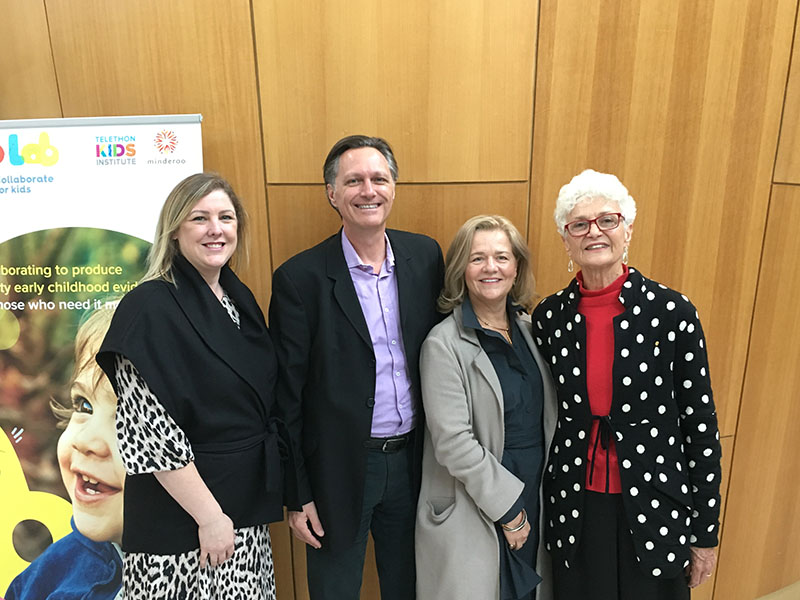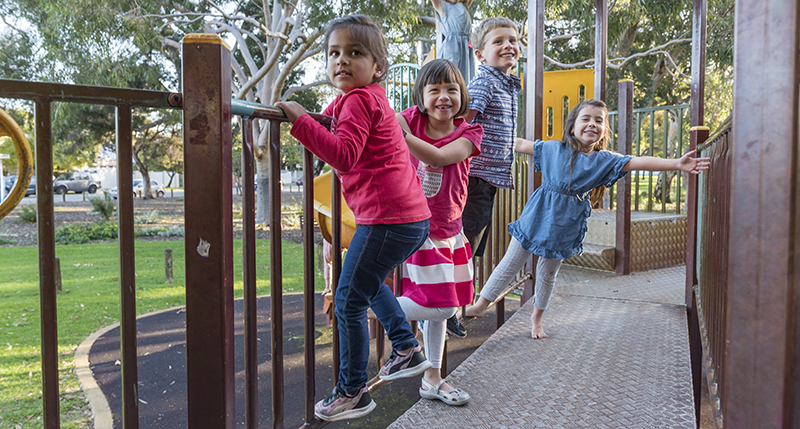Search

News & Events
Brain Cancer Awareness Month Q&A: Dr Hetal Dholaria’s vital work for WA KidsEach year in Australia, around 120 children are diagnosed with brain cancer, the leading cause of cancer-related death in young people.

News & Events
Australia-first mapping tool to improve service delivery to children and families launchedData on Western Australian children’s health, learning, development and social characteristics will be mapped using geospatial technology so that community leaders and service providers can identify the priority issues for their children.

News & Events
Annual CRE Investigators' Meeting draws researchers from around the worldBetween 3rd - 5th May 2018, researchers from Australia, New Zealand, South Africa, and the United States (representing their Uganda collaboration) convened in Fremantle, Western Australia to attend the Strep A Spectrum Meetings: from Science to Strategy.
Research
Population Wide Monitoring of Child Health and Development in TuvaluInvestigators: Alanna Sincovich Project description: The Pacific Early Age Readiness and Learning (PEARL) Programme, implemented by the World Bank,

The Early Years Systems Evidence (EYSE) team specialises in working in partnership with governments and service providers, with a distinct focus on improving the life chances of children in Australia.

News & Events
Top reasons why you should consider joining a playgroupWe have all heard of the phrase ‘it takes a village to raise a child’ but unfortunately in contemporary western society that ‘village’ can be hard to find.

News & Events
World Autism Day: Championing inclusion through research, resources, and supportToday, on World Autism Day, we embrace the theme Celebrating Differences, recognising the unique strengths, perspectives, and contributions of autistic individuals.

News & Events
The Kids’ clinical autism service wins WA disability awardCliniKids has won the Allied Health Professionals category at the Western Australian Disability Support Awards, announced at Crown Perth on the weekend.

News & Events
The Kids welcomes support for autistic studentsThe Kids Research Institute Australia has welcomed the recommendations to come out of the State Government’s inquiry into support for autistic children and young people in schools, released last week.
Research
Early biomarkers predictive of autismThis study aims to investigate the cellular and molecular profiles of the immune system in infants at high/low risk for Autism, as determined through clinical assessment.
